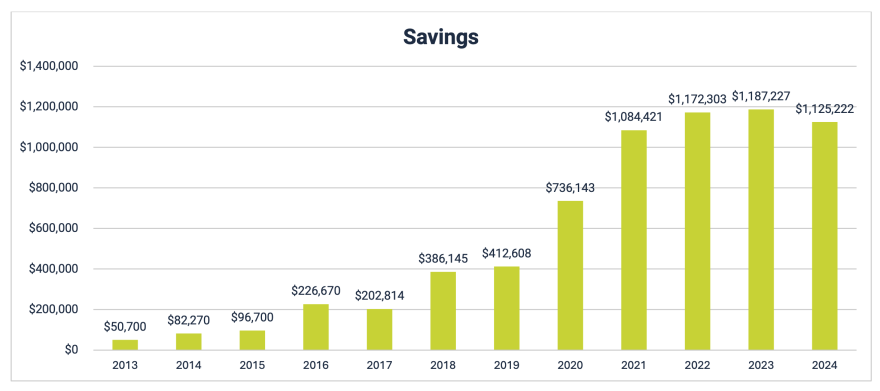Open educational resources (OER) are free learning materials like textbooks, lectures, assignments, entire courses and more. They are designed to be customized, revised and reused for individual needs. OERs promote accessible, affordable and adaptable education for students and faculty. They are free in digital format and can be printed for a very low cost.
We are committed to providing open education resources for our students so they can access the materials they need to learn and succeed in their studies. To date, our faculty has saved students over 6 and a half million dollars ($6,763,223) by using open educational resources.

Students
Find out how OERs are used at Douglas
- Explore open education resources through the Douglas library
- See the list of Douglas College courses using open textbooks
- Learn how the Douglas Student Union supports OERs
Faculty
Many faculty members are already using OERs successfully in their classrooms. Some are also creating open textbooks for use by students and others. Individual faculty members or teams can apply for incentive grants after they have replaced a commercial textbook with an open textbook or zero/low-cost supplemental materials in their course. Learn more below on how to apply and about our recent grant recipients.
Open Educational Resources incentive grants
Open textbooks
Individuals or teams teaching multi-section courses that have adopted, adapted or created an open textbook may apply for an incentive grant. Successful applicants are eligible to receive up to $500 towards the professional development activity of their choosing. Teams may receive up to $1500 towards a group event, project or activity.
Zero cost/low-cost supplementary resources
Individuals, or teams teaching multi-sections courses, that have replaced commercial supplementary resources with zero cost or low-cost supplementary resources may apply for an incentive grant. Successful applicants are eligible to receive up to $250 towards the professional development activity of their choice. Zero cost/low-cost materials may include library resources and digital course packs.
Please see our Zero cost/low-cost terms of reference for more details.
Grant submission process
- Applications submitted to the Office of the VP Academic and Provost will be processed by the Open Douglas Working Group.
- Applicants must be regular faculty members.
- The open textbook must be a required resource for the course that replaces a commercial textbook. For a zero cost/low-cost grant, the OER supplemental resources must be at least 75% of the course and the total cost of course materials cannot exceed $40 CAD.
- The adoption of the OER or zero cost/low-cost supplementary material must reduce the cost to students and/or significantly increase their use of a textbook/learning resource.
- The VP Academic and Provost will review applications three times a year. Application deadlines are May 1, Sept. 1 and Jan. 1 annually.
- The incentive grant will be awarded to faculty after successful implementation of the open education resource.
From Commerce and Business Administration
- Min Kim, Business
From Humanities and Social Sciences
- Laura Dane, Psychology
- Sarah Hogarth Rossiter, Philosophy and Humanities
From Health Sciences
- Tonya Roy, Nursing
- Leisha Vandermey, Nursing
From Science and Technology
- Brenda Addison-Jones, Chemistry
Applied Community Studies
- Tricia Rachfall, Therapeutic Recreation
- Elisabeth Hagerty, Social Work
Commerce & Business Administration
- Barbara Fellnermayr, Accounting
- Jack Lin, Accounting
Language, Literature and Performing Arts
- Yiwen Liu, English
- Elaine Avila, Creative Writing
- Nate Szymanski, English
- Sam Schechter, Communications
- Andrew Osborne, Communications
Science & Technology
- Sean Conner, Sports Science
- Nathalie Vigouroux-Cailli, Earth and Environmental Sciences
- Paul O'Connor, Chemistry
- Rosemary Oh-McGinnis, Biology
Applied Community Studies
- Jason Lam, Child and Youth Care
- Cal Oliver, Social Work
Commerce & Business Administration
- Nelson Eng, Computing Studies & Information Systems
- Chris Ricard, Marketing
Health Sciences
- Leisha Vandermey, Nursing
- Tonya Roy, Nursing
Humanities & Social Sciences
- Laurie Beckwith, Anthropology
- Sally Mennill, History
- Carling Beninger, History
- Sarah Paynter, Geography & the Environment
Language, Literature and Performing Arts
- Sam Schechter, Communications
Science & Technology
- Allan Majdanac, Mathematics
Faculty of Applied Community Studies
- Cal Oliver, Social Work
- Janice Spencer, Therapeutic Recreation
Faculty of Commerce & Business Administration
- Michael Wufka, Computing Studies and Information Systems
Faculty of Health Sciences
- Janessa Griffith, Health Information Management
Faculty of Humanities & Social Sciences
- Elliot Rossiter, Philosophy
- Carling Beninger, History
- Atsena Abogo Marie Therese, Anthropology
Faculty of Language, Literature and Performing Arts
- Elizabeth Bachinsky, Creative Writing
- Sam Schechter, Communications
- Michael Stachura, English
- Nathan Szymanski, English
Faculty of Science & Technology
- Andrew Kanerva, Sport Science
- Mandana Salajegheh, Sport Science
- Sean Conner, Sport Science
- Allan Majdanac, Mathematics
- Daryl Funk, Mathematics
- Wesley Snier, Mathematics
- Paul O'Connor, Chemistry
Faculty of Humanities & Social Sciences
- Sarah Hogarth Rossiter, Philosophy & Humanities
- Roger Tweed, Psychology
Faculty of Language, Literature and Preforming Arts
- Fenn Stewart, English
Faculty of Science & Technology
- Daryl Funk, Mathematics
- Allan Majdanac, Mathematics
- Jennifer Kirkey, Physics